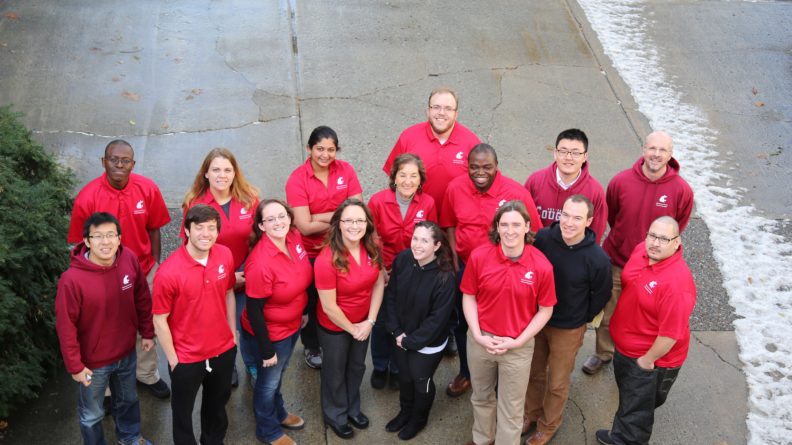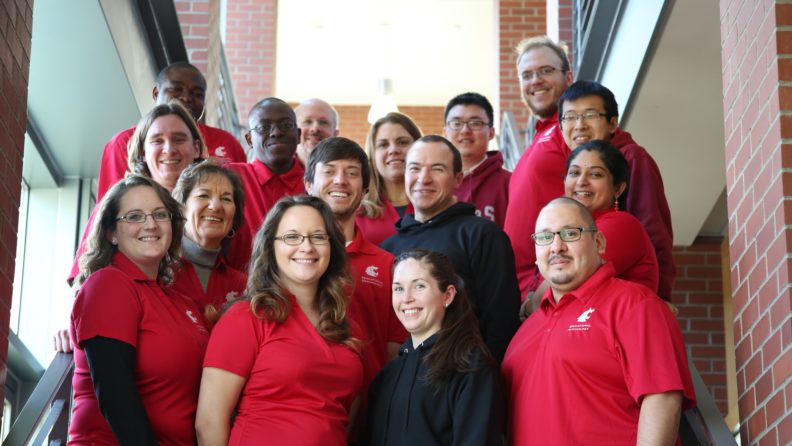Educational Psychology
Advancing theory and methods to better learning and performance.
Educational Psychology…..advancing theory and methods to better learning and performance.
Educational psychology is the study of how humans learn and retain knowledge, primarily in educational settings like classrooms. This includes emotional, social, and cognitive learning processes. Areas of focus might include teaching, testing and assessment methods, psychometrics, classroom or learning environments, and learning, social, and behavioral problems that may impede learning, technology in learning. Graduates work as professors, education specialists, learning analysts, program evaluators, and find positions in research institutions, school systems, the testing industry, government agencies, and private industry.
Dig deeper
- Educational Psychology Overview
- Master of Arts (M.A.) in Educational Psychology
- Doctor of Philosophy (Ph.D.) in Educational Psychology
- Graduate Certificates
Helpful links



Educational Psychology Program
Student Learning Outcomes
The learning outcomes on which students are rated include:
- Ability to think critically, evaluate, understand, apply, and communicate scientific research
- Students will develop ability to critique research.
- Students will be a major contributor (co-author) on one conference presentation or
- publication
- Students will design and present their yearly projects.
- Students will develop a dissertation or thesis that poses significant questions that can be investigated empirically, links research to relevant theory, uses methods that permit direct investigation of the question, uses methods that permit direction investigation of the question, provides an explicitly and coherent chain of reasoning, interprets outcomes of the study in light of current knowledge, with a goal to make research public to encourage professional scrutiny and critique for the public good.
- Ability to evaluate and apply research designs
- Students will design and present their yearly projects.
- During the prelim process, students will develop a cohesive, relevant research plan.
- During the dissertation or thesis proposal process, students will develop a cohesive, relevant research plan
- Ability to evaluate and apply statistical and measurement principles to their area of research.
- Students will evaluate and apply appropriate statistical techniques in these areas. The statistical knowledge will include (but not limited to) correlation, (multivariate) analysis of (co)variance, regression, factor analysis, structural equation modeling, meta-analysis, item response theory, etc. Different combinations of these and other statistical techniques will be applied in students’.
- Yearly project
- Conference papers
- Publications
- Prelims
- Proposals
- Students will evaluate and apply appropriate statistical techniques in these areas. The statistical knowledge will include (but not limited to) correlation, (multivariate) analysis of (co)variance, regression, factor analysis, structural equation modeling, meta-analysis, item response theory, etc. Different combinations of these and other statistical techniques will be applied in students’.
- Awareness and evaluation of how diversity issues and protected populations influence research
- Students will complete appropriate research training (i.e., CITI, Graduate School requirements) and provide documentation of completion. persons and research participants.
- Students will create and display appropriate information in presentations and publications that demonstrate they have followed organizational (e.g., APA) standards for treatment of
- Students will develop competence in Institutional Review Board (IRB) applications, understand the IRB process, and the development and use of consent strategies (e.g., forms, oral, etc.)
- Development of professional identity appropriate for future career plans
- Students will establish membership in a professional organization relevant to her/his field of specialization.
- Students will provide service to professional organizations.
- Students will review for conferences/journals related to professional organizations.
- Students will hold leadership positions in professional organizations.
PDF links to the following will be coming soon:
Handbooks
- Ed Psych Master’s Handbooks
- Ed Psych Doctoral Handbooks
- Ed Pysch Courses
- Ph.D. Course Waiver
Program Updates
- Newsletter (2024)
- Newsletter (2023)
- Newsletter (2022)
- Newsletter (2021)
You can find more information regarding applications at our Frequent Questions Asked by Prospective Students page. For further information, email us at edpsych.coe@wsu.edu or complete this short survey. you can also reach out to specific faculty of interest.
